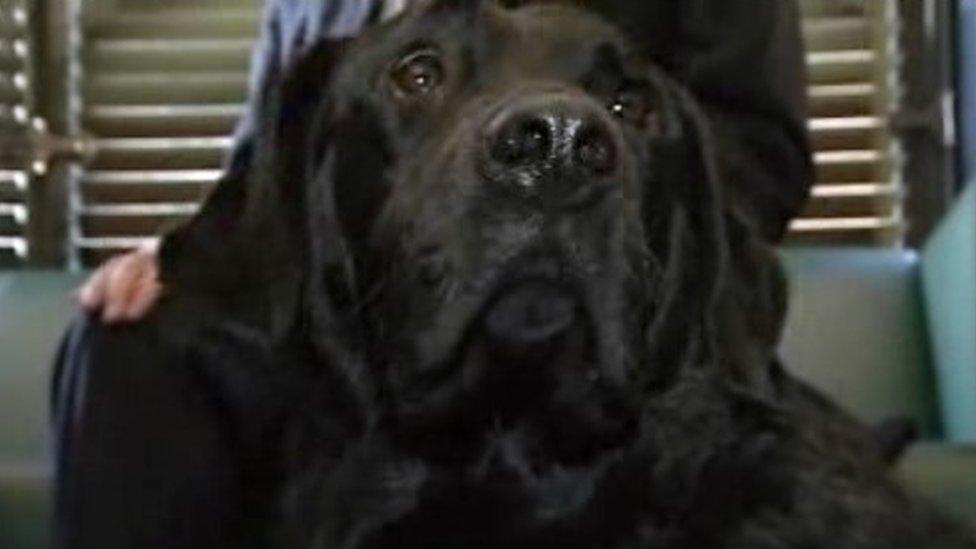'Why we run a boarding house for puppies'
- Published
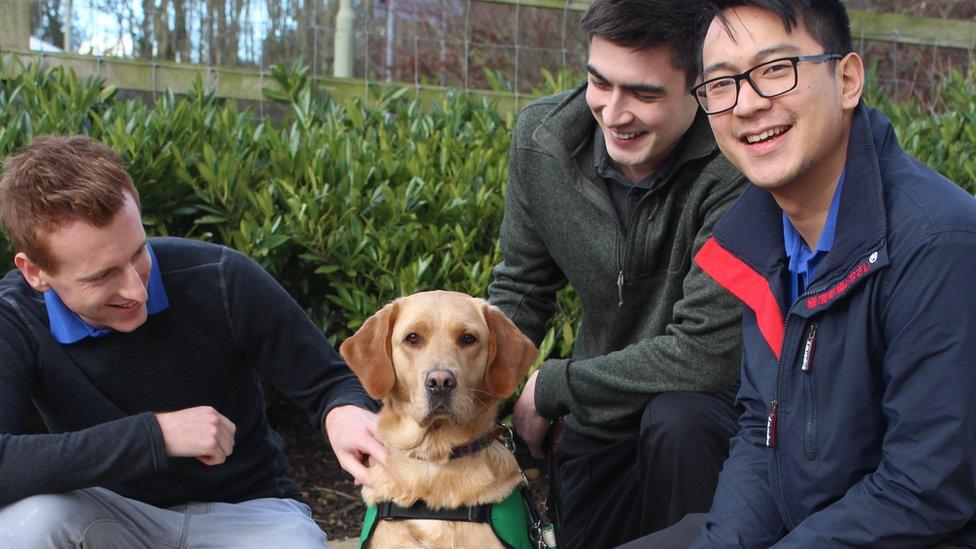
From left: Richard Dix, Darcy O'Gara and Steven Luong with Sadie, another assistance dog in training
Housemates Darcy O'Gara, Steven Luong and Richard Dix are all volunteer dog boarders. They have full-time jobs at the same firm, but also look after string of part-time puppies.
Puppy boarding is one way charities are dealing with spiralling waiting lists for guide dogs and assistance dogs.
"We've had seven puppies and dogs, but Urwin is probably the cheekiest," says Darcy, 27.
"You have to be careful if you have food lying around, but he's quite adorable."
For the past two years, the colleagues-turned-housemates have run a "puppy B&B" from their home in Banbury, Oxfordshire, which involves hosting a puppy for evening and weekend stays.
The puppies go on to become assistance dogs for a person with a physical disability, or condition such as autism or dementia.
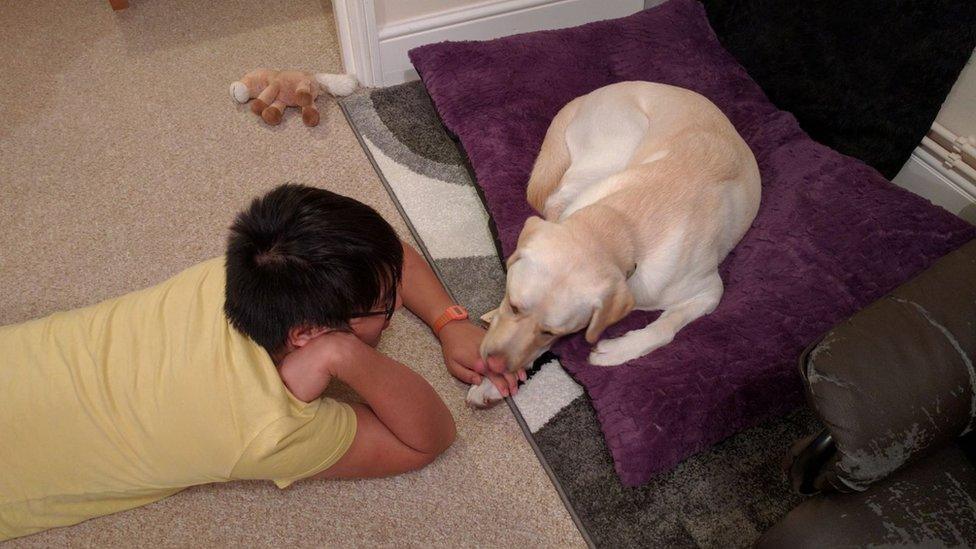
Steven playing with their first puppy house-mate, Neptune
"I'm at work all day so I couldn't realistically have a pet dog," says Darcy, who along with Steven, 27 and Richard, 28, work in aerospace technology.
"Between us, boarding a puppy is perfect - there's always someone to cover for you," he says.
How it works
Before getting to the office, Darcy drops off Urwin, one, at a local training centre, then picks him up again during his drive home from work.
"It's literally on my commute," he says. "I'll just get up half an hour earlier than usual to toilet and feed him, and in the evenings we socialise and play."
At weekends, he'll take their guest to the shops, on public transport, and even to a nearby outdoor cinema.
All food, toys and pet insurance is covered by the charity.
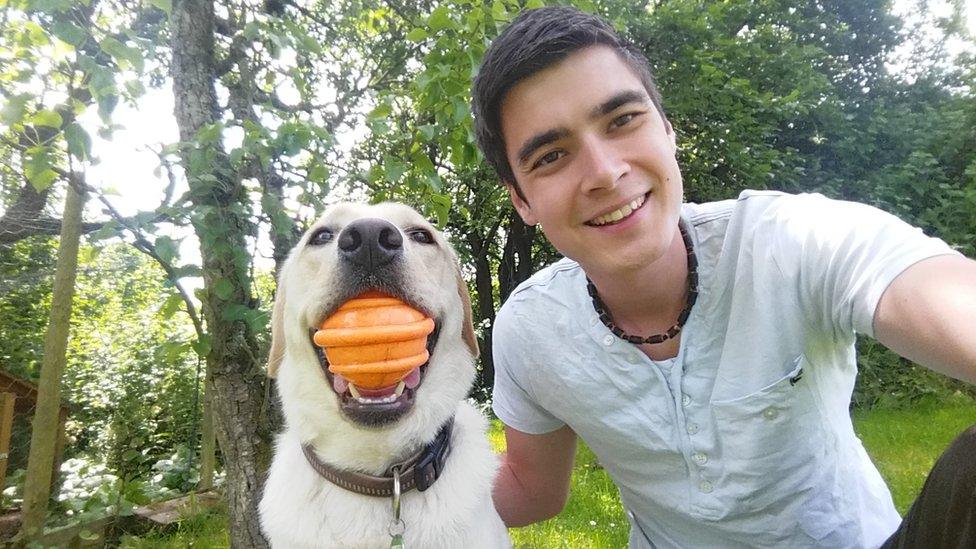
Darcy with another of their dogs, Zac, who they hosted last summer
They board a dog for any period of time, from a single weekend to several months.
Their current guest, chocolate Labrador Urwin, was injured during his training as an assistance dog, so has been with them for five months.
Darcy adds: "You don't need to be at home all the time, or need a load of space, and usually there's a boarder nearby if you want to go on holiday."
The charity will do a home assessment for suitability but in general terms, all that is needed is a secure garden for the dog to spend time in.
What the puppies do
Darcy, Steven and Richard's puppies have gone on to become assistance dogs, which can make a life-changing difference to people with a physical disability, or conditions like autism or dementia.
The three men are among 40 boarders who volunteer for local charity Dogs for Good. They don't need to do any training themselves, but must treat the puppies differently from an ordinary pet.
"We don't let the dogs on the sofa, just in case their new owner doesn't like that," Darcy says.
"They also encourage us to socialise the dogs with as many different people as possible".
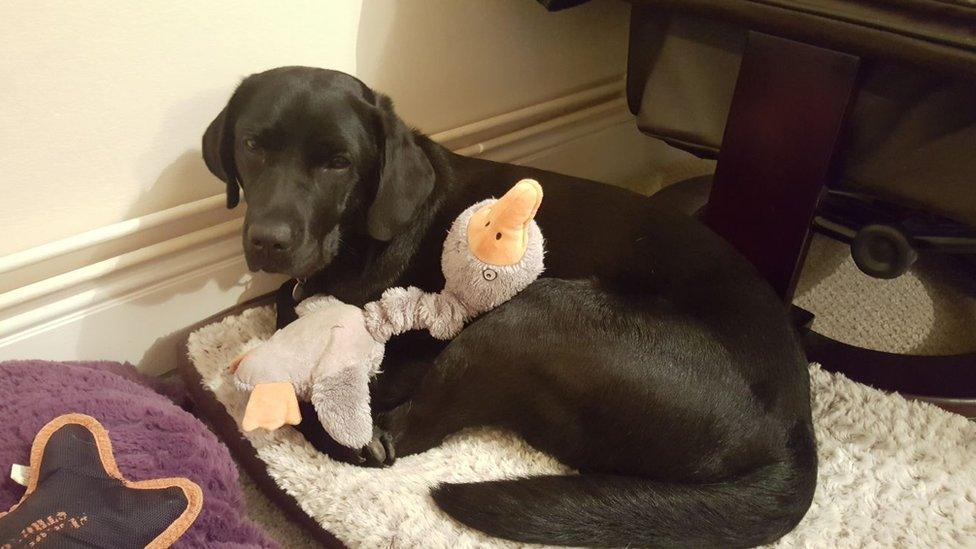
One of their boarders, Lily, was recently sent to assist a person in Blackpool
He says it's "obviously a little bit sad" when their dogs go to their new owners, but they get regular updates from former boarders.
"It's lovely to hear that Lily's gone to Blackpool, for example, or that Vixen has gone to a woman with MS and made an amazing difference to her life".
How do boarders help?
There are about 7,000 assistance dogs in the UK that are registered with charities, but many more are trained by their owners.
Organisations which train assistance dogs are warning they are struggling to meet demand from those in need - partly because training a puppy is such intensive work.
One charity, Canine Partners, says it was recently forced to suspend applications for support due to a shortage of dogs.
David Bailey, the charity's operations director, said the move was "disappointing" but cited an "exceptionally high number of enquiries and a long waiting list".
Where do the puppies come from?
Sharon Gawler, from Dorset, is another puppy host. She's got the unusual job title of "brood bitch holder".
Her pet dog Faith, four, has just had a litter of eight puppies - all of them set to be trained to assist people with physical disabilities.
"I've put my heart and soul into the puppies for eight weeks," she says.
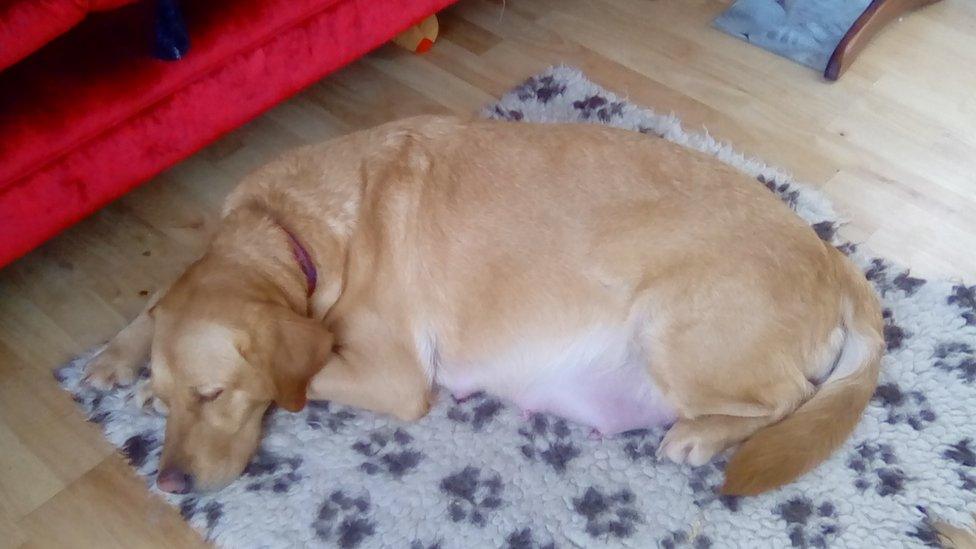
It's hoped Faith, pictured pregnant with her eight puppies, will go on to have two more litters
Her 2018 has so far been spent feeding puppies four times a day, making sure they are happy and healthy, as well as handling, grooming and socialising the newborns.
"We do an awful lot of giggling and playing," she says.
"We expose them to lots of noises, sounds, colours, so we've got a rounded puppy without any unnecessary fear," she says.
"So they've met old people, young people, noisy people, quiet people - as many as they can, obviously following strict health and hygiene rules."
Faith, a Golden Retriever and Labrador-cross, was also due to be an assistance dog - but the charity that owned her, Canine Partners, set her aside to produce litters instead.

Faith's brood: Hauxley, Hamble, Havana, Melford, Chatsworth, Holly, Rory and Merlot
"Most of the year Faith is an ordinary family pet, albeit one who's highly trained," adds Sharon.
She says having a job shouldn't put someone off caring after a brood.
"You just need a happy, healthy home and access to a toilet area. You don't need a huge space, you just need somewhere that you can have puppies running around in and having fun."
- Published20 November 2017
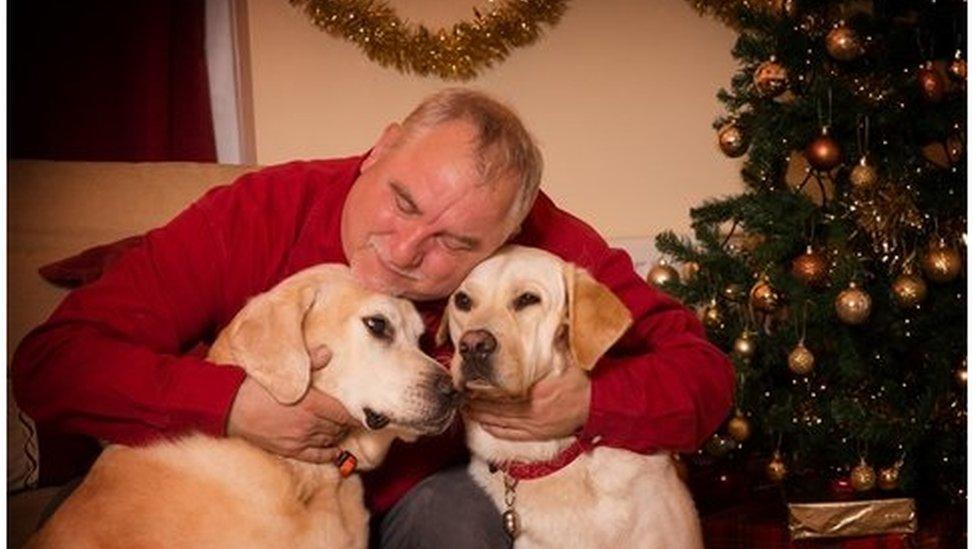
- Published25 January 2017

- Published16 November 2017
